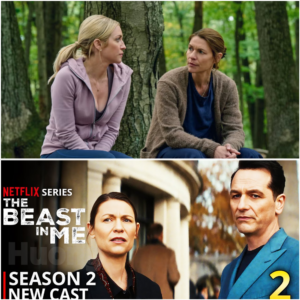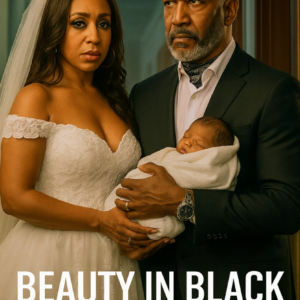
Photo: Prime Video
It’s been a dark and polarizing season of The Boys, hasn’t it? As we see more and more pieces about this show’s downturn in quality — this one might be a cathartic read if you’re fed up — I find myself reflecting on the way my own feelings have evolved from skepticism to pleasant surprise with a few stops at annoyance and distaste in between.
Yes, in many ways, season four was a downgrade. Tonally, the show has begun to stray from the smartly calibrated balance of years past toward an overemphasis on gross-out humor and torture porn. The political satire is much blunter now with the main villain modeled even more explicitly on Donald Trump, sometimes eye-rollingly so. (I did not need “make America super again” as the final pre-credits words.) Compared to season three’s cohesive Soldier Boy arc, the plot is more scattered this time around; multiple individual character arcs have felt repetitive or just disconnected from the larger story.
But season three also wasn’t built to satisfy in the end. The Boys were never going to kill Homelander successfully, and they didn’t even manage to kill Soldier Boy. There were consequences that stuck, yes, like Butcher’s illness and Ryan’s bond with Homelander, but it still felt curiously weightless, especially compared to “Herogasm.” Season four hasn’t had the same problem: With the fifth and final season announced already, the show is free to pull out all the stops and actually alter the status quo. We’re left with a deeply grim ending in the Empire Strikes Back mold, presumably setting up at least some redemption and hope alongside the bloodshed in the final eight episodes.
“Assassination Run” begins as electoral votes are counted on January 6. Dakota Bob Singer is about to become president, and the Boys’ main two focuses are the same as in the previous episode: protecting Singer from the shapeshifter assassin and perfecting the virus to finally take out Homelander and Victoria Neuman.
The shapeshifter story line was introduced only last episode, so it’s fitting that it gets wrapped up in the first half of this one, though she manages to inflict an incredible amount of damage before we get to that point. First, Shifter keeps up the Annie charade by borrowing a story about her great-grandpa and proposing to Hughie, a gesture he returns by presenting the ring he got from his mom. (It’d be cute if, you know, it was actually Annie.) She also wiped all the traces of Hughie’s dirt on Neuman.
To maintain the same shape, Shifter needs to occasionally make contact with the original and “recharge.” So she slips out and spends some time taunting the real Annie, a scene that serves a couple of purposes. For one, it’s just a nice excuse to see Erin Moriarty have some fun playing twins, chewing the scenery as one Annie while the other cowers in fear and desperation. But the face-off is also a literalization of the ongoing “good-girl Annie versus bad-girl Annie” idea with Shifter delighting in reading Annie’s memories and teasing her for perceiving herself as a hero.
It feels a tad contrived, honestly — I’m not totally sure why this random sociopath is so preoccupied with mocking the internal moral conflicts of one of her victims when she should be focused on assassinating the president — but it does allow Annie a chance to reflect and make peace with her own moral ambiguity. I still don’t really think she’s done anything that bad, though, especially as an adult. Annie was a bit of a bully as an adolescent, brainwashed by her mom and the ruthless pageant circuit, but her struggle to make peace with that past doesn’t really compare to the baggage Frenchie and Kimiko are dealing with.
Once she’s recharged, Shifter joins Hughie, Mother’s Milk, and Kimiko in a bunker set up to protect Singer. That’s when Hughie really puts the pieces together, noticing his “girlfriend” using the same phrase as Shifter did when they met her in a different persona. He and MM do their best to play along with Shifter’s friendly chatter and hide how much they’re freaking out, but their best is decidedly not good enough, mainly because they’re both truly awful liars. Shifter easily reads their body language and makes her attack, murdering several Secret Service agents and breaking Kimiko’s neck before finally falling at the hands of the recently escaped real Annie. “I don’t know if I’m a hero. I don’t know who the fuck I am,” Annie admits. “But I do know that I’m the bitch beating your ass.” Not her best work, but it gets the job done.
With the plot to kill the president-elect thwarted, everything changes for Neuman, especially with the double whammy of Homelander exposing her supe identity live on air. He makes it clear that when she does become president — because he’ll kill Singer himself if necessary — she’ll just be a puppet, controlled by one of the only supes deadlier than her. Even more important, her daughter’s life is collateral. Neuman knows now, more than ever, that Zoe could die if they don’t escape this nightmare alliance.
In my view, this season has done a really good job justifying its various flips in allegiance, especially when it comes to A-Train (oddly absent here). The same is true for Neuman: We’ve seen more interaction than usual between her and the Boys this season, between her conversations with Hughie and the team-up at Stan Edgar’s farm. So when she does call and say definitively that she wants out, agreeing to help the Boys take down Vought in exchange for protection, the moment feels earned. And Hughie’s entreaty to his teammates feels earned, too, after the amount of trauma he has experienced recently (and in general). Maybe choosing forgiveness over more violence is the way out of this.
Of course, the point when an alliance with Neuman actually seems possible is also the exact point when she has to go. When Butcher shows up to their meeting, Hughie’s plea to “trust him” isn’t nearly enough to shift him away from his resolute “no deals” stance. He’s quick about it: A whole Doc Ock’s worth of tentacles burst out of his chest, lift Neuman into the air, and rip her in two, spilling her entrails all over her short-lived allies. It all happens very quickly, and nobody is brave enough to try to stop him from running off with the new virus.
The scenes at the CIA safe house with Butcher, Ryan, and Grace Mallory are all pretty good, building to a disturbing and sad climax when Ryan kills Grace by reactively pushing her away when she threatens to trap him there. That moment retroactively justifies some of the time spent on Homelander’s “therapeutic” journey to the lab earlier this season; Ryan doesn’t want to embrace his father’s ideals, especially now that he knows he raped Ryan’s mom, but he sees the commonalities in how they’re treated. Homelander was offered crumbs of affection to nurture his dependence on a group of people who only really wanted to use him as a weapon. It’s hard for Ryan not to feel like this is history repeating itself.
Unfortunately, Ryan’s resistance to his new designated assignment (killing his own father) might be what dooms him if Butcher reaches a point of no return by using the virus on the son figure he swore to protect. He had no hesitation in sacrificing Neuman and torching his relationship with his former team, after all. And despite Butcher’s smirk as he flees into the night, it’s hard to deny that America under Speaker turned President Calhoun will be a worse place than the America of even a week before. Calhoun is firmly in Homelander’s control, and with seemingly no principles or aspirations of his own, he’s a more ideal puppet than Neuman would’ve ever been.
This was, broadly speaking, Sage’s plan all along. Sure, there were missteps and unforeseen obstacles, but in retrospect, she did a great job setting everything up so that the larger plan couldn’t really fail. Singer may not be dead, but he makes a perfect patsy when Neuman dies. The Deep, Black Noir, and Firecracker easily eliminate everyone at Vought who has dirt on the Seven (if that’s even possible), apparently with absolutely no legal consequences. And once Homelander orders the so-called deep-state Starlighters to be rounded up, each of the Boys are quickly tracked down and taken by deputized supes (including Gen V’s Guardians of Godolkin). Only Annie and Butcher are free, and the country has plunged into chaos.
So a messy but compelling season ends with a vision of America that is not so different from what was recently outlined in Project 2025. At this point in the show, the satire might not have the same punch as it did in the first couple of seasons, but even now, The Boys’s idea of dystopia still feels painfully familiar.


